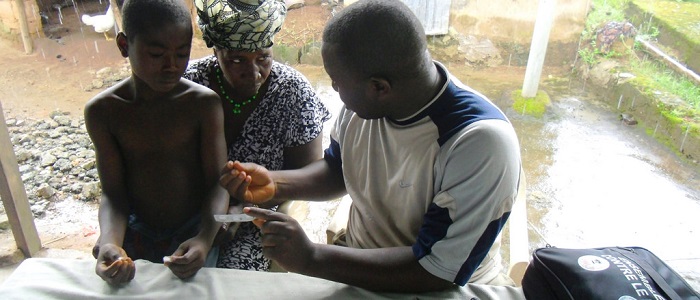
Summary
Malaria accounts for 40 percent of outpatient visits and 18 percent of all hospital deaths in Malawi (Malawi Government, 2005). It is also the major cause of anemia in children under five. Save the Children, a US-based nongovernmental organization, implemented a school-based malaria treatment program, which aimed to decrease malaria mortality rates and enhance positive school outcomes for students. This paper sought to evaluate the impact of the malaria treatment program in the Mangochi district, on both school and health outcomes.
The study assessed the impact of the malaria treatment program in selected schools against schools not included in the program, looking at all-cause mortality, routinely reported sickness, general absenteeism and total absenteeism, class repetition and drop-out. A cost-benefit analysis of the intervention – focused on training teachers how to diagnose malaria and use treatment kits at school to improve access -- was also carried out.
The study found that the school-based treatment program implemented by Save the Children was effective in reducing absenteeism and repetition. The program further improved the skills of teachers and reporting of sickness among pupils. The results suggest that the benefits of the proposed intervention greatly exceeded the costs, and that it is feasible to reduce poor school performance for primary school pupils. Future studies should focus on exploring the feasibility of implementing Artemisinin-based combined therapy (ACT) in primary schools, using rapid diagnosis tools as this might increase effectiveness of the approach. Further analysis on how the intervention can lead to reduction in disease burden is needed.
- George Bello (Epidemiology Department, Community Health Sciences Unit)
- Bertha Nhlema M. Simwaka (Malaria Control and Evaluation Partnership in Africa, Seattle, USA)
- Kisukyabo Simwaka (University of KwaZulu Natal, School of Economics and Finance, KwaZulu Natal, South Africa)
If you cite this resource, please notify communications@gdn.int with the subject line 'GDN citation'.





